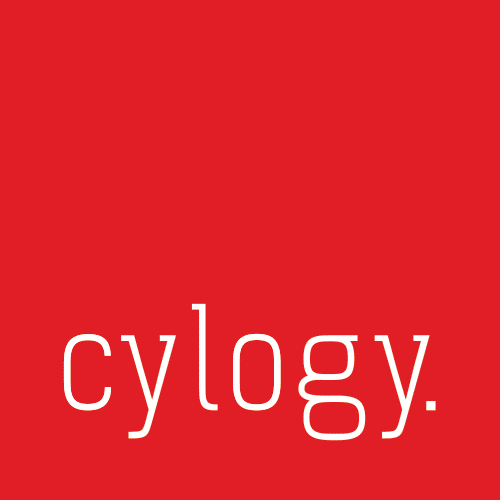When organizations undertake a significant digital project like a new website, a new marketing or customer experience strategy, starting a Voice of the Customer program or simply realize that current efforts are not working, they may need to review their marketing technology stack.
When reviewing your marketing tools, it is always worth considering whether investing in a DXP is a path to consider. Here at Cylogy we have seen how Sitecore and Optimizely (Episerver) can truly take marketing efforts to the next level, improve processes, put teams more in control, deliver better campaigns and even implement a customer-first culture. But it can be a significant investment and it is not for everyone; some teams operate quite happily, and even prefer, taking more of a best of breed approach.
Of course, operating a DXP and using a range of a best of breed tools is also not mutually exclusive. Teams using platforms like Sitecore are likely to use additional tools. But if you are considering whether to go down a DXP path or stay with best of breed tools, there are a number of key questions to consider. Let’s explore nine of these.
1. What are you trying to achieve?
This sounds obvious, but the starting point has to be what you are trying to achieve relating to customer experience, and whether your current toolset is going to get you where you want to be. For example, if you have a big digital project on the horizon like a new website and your current stack is simply not up for the job, then there may be an opportunity to invest in a DXP. Another reason is that you have an ongoing issue that needs a new approach. On the flipside, if you’ve got nothing big planned in the pipeline and things are OK, then perhaps there is little reason to change your approach.
2. Do you need to better understand your customers?
One of the main problems with a best of breed approach is that it can be significantly harder to get a comprehensive understanding of your customers; sometimes your customer data is siloed or even hidden in different systems or has output in different formats and is therefore harder to assemble into a single cohesive picture. In this case, a DXP like Sitecore has a significant advantage over ‘best of breed’ in the ability to deliver deeper and more meaningful customer insights which can be critical for digital marketing success.
3. Are your marketing processes joined up?
One distinct advantage of a DXP is that its integrated features deliver smoother workflow and more efficient marketing processes, often across different channels. When you have a wider set of tools marketing processes can get fragmented. If your core marketing processes involve multiple manual steps, often in separate platforms, you end up wasting lots of time and/or potential integration work can be too expensive, then it might be time to look again.
4. Do you have multiple applications with overlapping capabilities?
If you have a complex marketing technology portfolio it is likely that you may have applications and systems that have overlapping capabilities. This is not only wasteful, but it may also mean different teams are using different systems to achieve the same goals, and again it may cause fragmentation in your approaches to marketing. Typically, this can happen when marketing is decentralized across different lines of business or locations and there is a lack of communication and coordination between those teams; here it is much harder to drive standardization, consistent customer experiences and carry out campaigns, when everyone is using a different tool. Again, a DXP can prove to be a game changer in driving standardized approaches.
5. Are the related costs too high?
A Digital Experience Platform might seem like a significant investment and yes, it may raise the eyebrows of your Head of Finance. But have you calculated the costs of all your combined current marketing technology tools, some of which may be overlapping? And what is the cost over three years? You may find that there is a relatively straightforward business case to make where actually your DXP is the cheaper option in the long run.
6. Does scattered ownership patterns make life complicated?
One thing about having best of breed tools is that you may actually have different sets of owners, across your sales team, your contact center, your business development team and so on. Scattered ownership can make life complicated because some owners can be protective of a tool and it’s data, leading to fragmented processes, an incomplete understanding of your customers and so on. A DXP has the advantage of being truly enterprise-wide and removing frustrating silos that can revolve around product ownership. However, a centralized DXP can never be a replacement for strong communication and coordination between disparate teams. The DXP helps, but it needs to go hand-in-hand with effective coordination on process, best practices and workflow.
7. Are there tools you simply cannot let go of?
Of course, you may have some tools that you absolutely love and rely on, that you really do not want to switch from. It could be a social media analytics tool or a blogging platform, for example. If you have a long list of best of breed tools that you simply cannot let go of, then that can perhaps discourage you from investing in a DXP. Remember though a DXP and some other tools can quite happily co-exist.
8. Are you able to meet GDPR compliance or is it a nightmare?
GDPR compliance and ensuring robust data security are important but they can be significantly harder to navigate when you have loads of different systems in place. How easy is it for a contact who might appear in multiple systems to exercise the right to be forgotten, for example? Here a DXP can have advantages in being able to stay compliant.
9. Do you already use a system that you can expand into a DXP?
Some teams actually use a part of a Digital Experience Platform such as Sitecore but do not exploit its full power, typically just using it as a Content Management System. There are multiple reasons for this including resourcing and team know-how. Additionally, a license also may only give access to some capabilities – for example in Sitecore not all organizations will use the Content Hub, Sitecore’s DAM capability. If this is the case and your organization is already using a DXP but not exploiting its full power, then going further down that path is going to be significantly easier than starting from scratch.
To DXP or not DXP, that is the question
Investing in a Digital Experience Platform is a big step for marketing teams and has to be thought through carefully. In this post we’ve highlighted some of the questions to think about, but there are likely to be more. If you’d like to discuss how a DXP like Sitecore or Optimizely (Episerver) might help you then get in touch!




